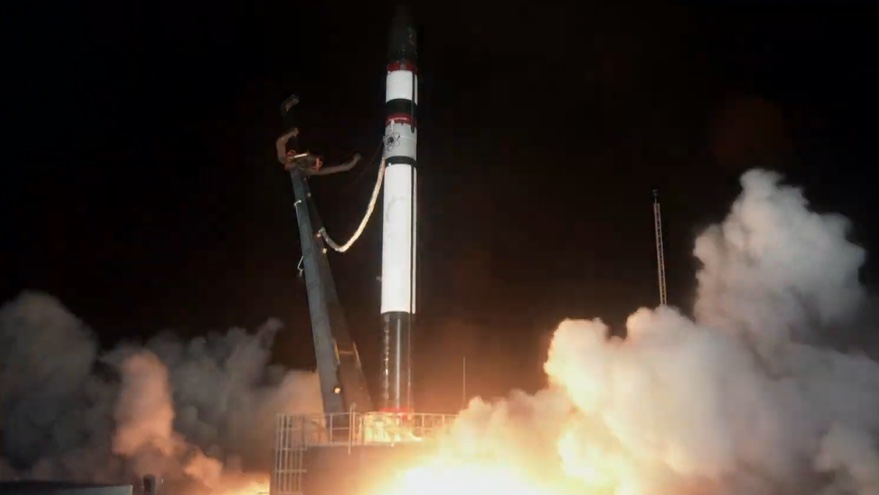Products You May Like
EL PASO, Texas — Rocket Lab said July 19 that it has identified the cause of an Electron launch failure more than two months ago and that the vehicle is ready to return to flight.
The Electron rocket failed to reach orbit in a May 15 launch from Rocket Lab’s Launch Complex 1 in New Zealand. Shortly after stage separation, the upper stage’s single Rutherford engine ignited but appeared to shut down seconds later. The company declared the vehicle lost about a half-hour later.
Rocket Lab said an investigation by the company traced the root cause to the rocket’s second stage engine igniter system. A problem with the igniter corrupted signals in the computer on the stage, which in turn caused the thrust vector control system to “deviate outside nominal parameters.” The engine computer then shut down the Rutherford engine.
The igniter problem, the company said, resulted from “a previously undetectable failure mode within the ignition system that occurs under a unique set of environmental pressures and conditions” not noticed in previous testing of the engine or on previous Electron launches. Engineers have replicated the problem in the lab and created what Rocket Lab called “redundancies” in the ignition system, including changes to the design of the igniter and how it is manufactured, to prevent the problem from happening again.
The failure was the second in less than a year for the Electron, one of the leading commercial small launch vehicles. An Electron launch failed in July 2020 because of what the company said was an “anomalous electrical connection” in the second stage that had evaded acceptance testing. The Electron returned to flight less than two months later.
Peter Beck, chief executive of Rocket Lab, said after that earlier failure that the company would take other steps to improve overall reliability in addition to correcting the specific issue that caused the failure. “We took a big step back and a had a look across the whole vehicle, and as a result we’ve made a bunch of changes to work instructions and quality signoffs,” he said then.
Beck said June 2 that the more recent launch failure was “complex” and required “an intricate and layered failure analysis.” At that time, Rocket Lab said they had replicated the failure in the lab and were working to understand the sequence of events that led up to it and what steps they needed to take to correct it.
Rocket Lab said in a statement that the next Electron will be “back on the pad” later in July but did not specify a launch date or payload. A company spokesperson said that the launch window for Electron’s return-to-flight mission will open later in the month.
